
How horses are helping mothers and children recover from domestic violence
by Shoshanna Rose
The life-long psychological and emotional effects of domestic violence on survivors has been likened to that of post-traumatic stress disorder experienced by returned soldiers. Here's how Equine-assisted therapy is helping.
Julie’s* husband abused her for more than twenty years.
Eventually, the domestic violence support service, DV Connect, got Julie and her children out and sent them to a refuge 100 kilometres away for their safety.
Even though it has been three years since she and her children fled the family home, they are still trying to deal with the effects of the abuse.
“It was the whole spectrum of abuse – financial, emotional, sexual, even the pets. Just the whole works,” says Julie.
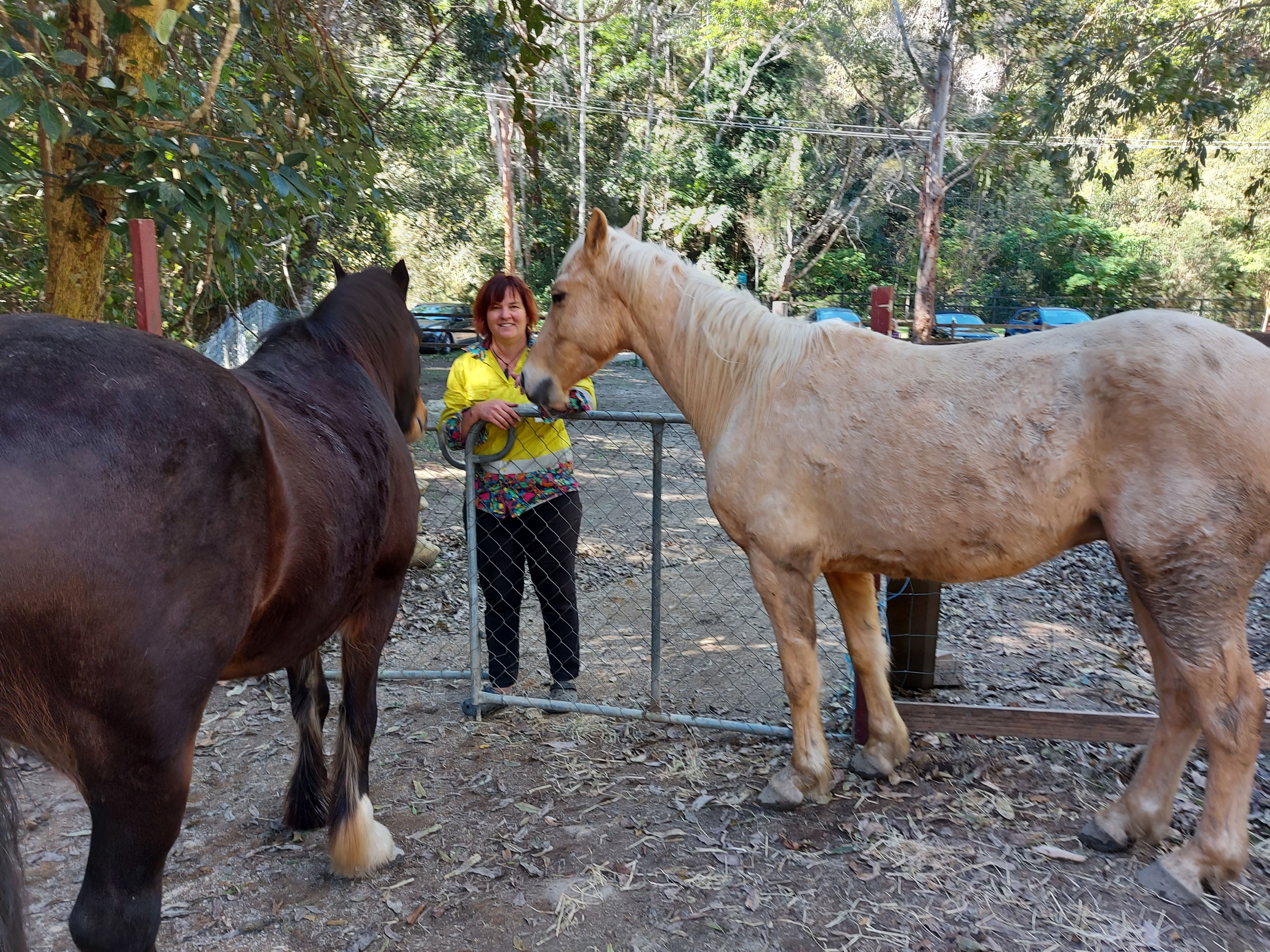
Counsellor and psychotherapist, Jane Ashton, owns and runs The Therapy Pod in the Tallebudgera Valley, Queensland - where she and other therapists treat clients using Equine-assisted therapy. (Netta Finney)
Counsellor and psychotherapist, Jane Ashton, owns and runs The Therapy Pod in the Tallebudgera Valley, Queensland - where she and other therapists treat clients using Equine-assisted therapy. (Netta Finney)
“I was really fearful of his reactions.
“We were sent to a refuge and just the peace of having nobody controlling your life and manipulating and gaslighting - it was really amazing.
“Just the freedom, you know?
“It was all about me and getting me all the support I needed as a mother, which was wonderful.
“There was absolutely no contact with him at that stage.
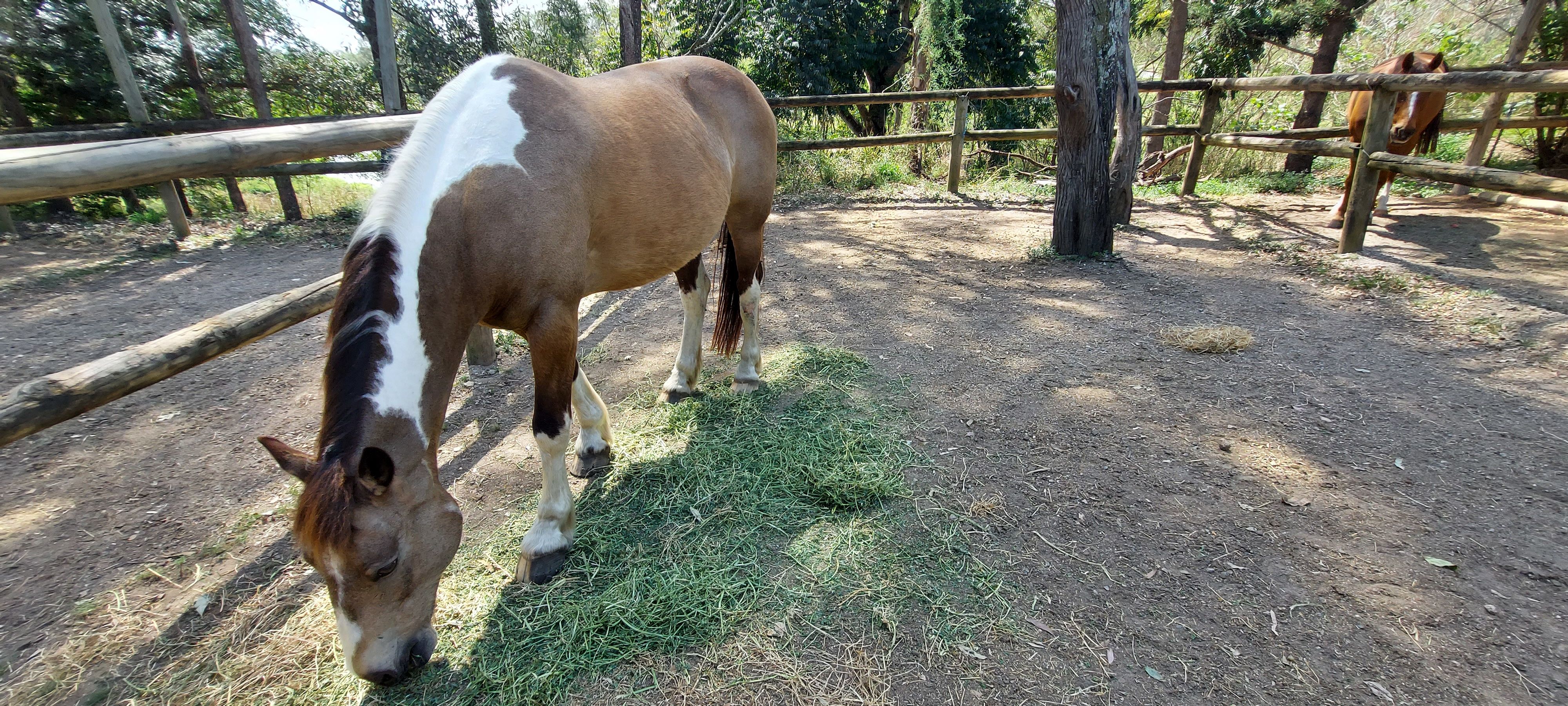
There is evidence that children who are exposed to family violence are at greater risk of experiencing anxiety, anger, depression and suicidal ideations, withdrawal, low self-esteem, and attention deficit hyperactivity disorder. (Netta Finney
There is evidence that children who are exposed to family violence are at greater risk of experiencing anxiety, anger, depression and suicidal ideations, withdrawal, low self-esteem, and attention deficit hyperactivity disorder. (Netta Finney
That peace was short-lived, as Julie’s ex-husband applied to the court for access to their children, which the court granted. She is now forced to co-parent with him.
Julie says he uses his contact time to continue to emotionally abuse their children.
She describes the effect it has had on them.
“My youngest is telling me he wants to commit suicide,” she says.
“He is actually getting a carrot and putting it down his throat.
“One of my eldest is putting pencils in the walls and making holes all over the place.
“He’s been conditioned, basically groomed, to see women as not respected.
HEART (Healing, Equine, Art, Resilience Therapy) is an innovative new program run by the domestic violence charity, Broken to Brilliant.
HEART (Healing, Equine, Art, Resilience Therapy) is an innovative new program run by the domestic violence charity, Broken to Brilliant.
“My daughter’s really quiet, she’s really, really scared to make a move, she doesn’t want to do anything to upset my ex.
“The trauma they have experienced is huge and it comes out in their behaviour, everyday.
“So, I’m just trying now to get them a little bit of help psychologically.”
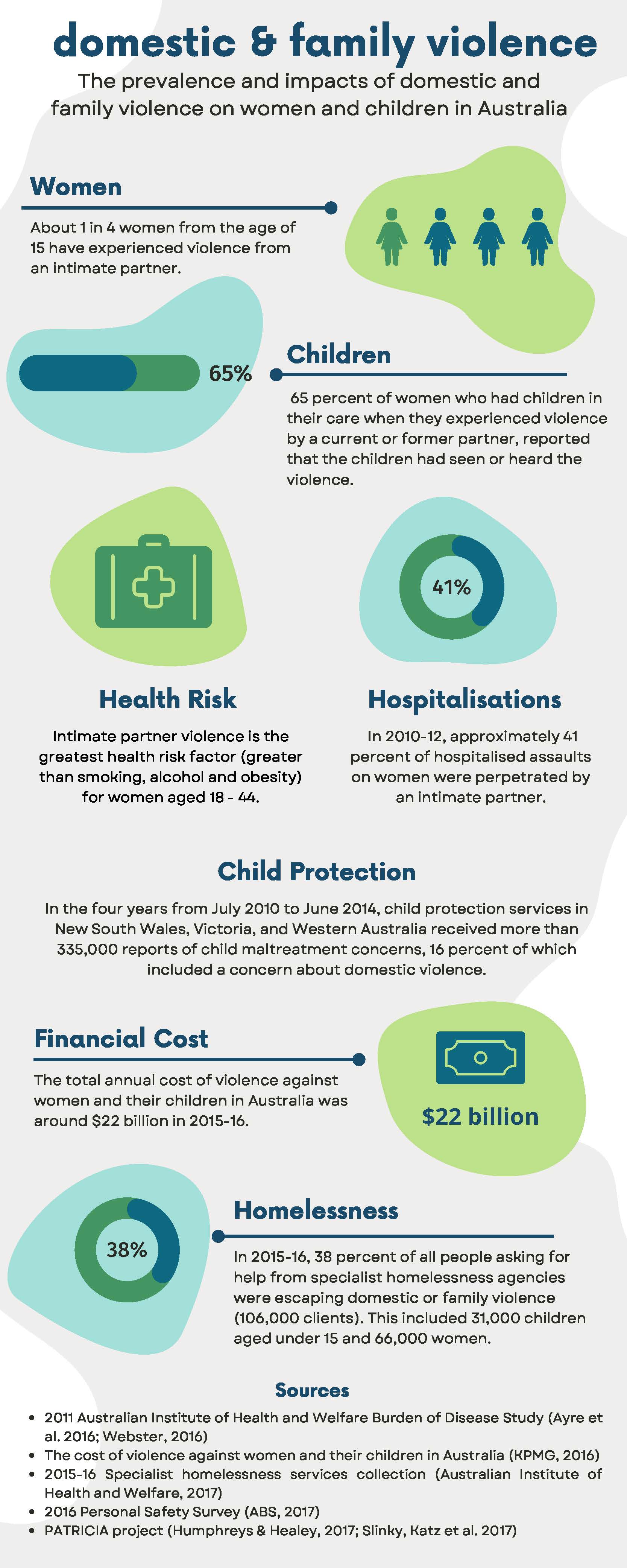
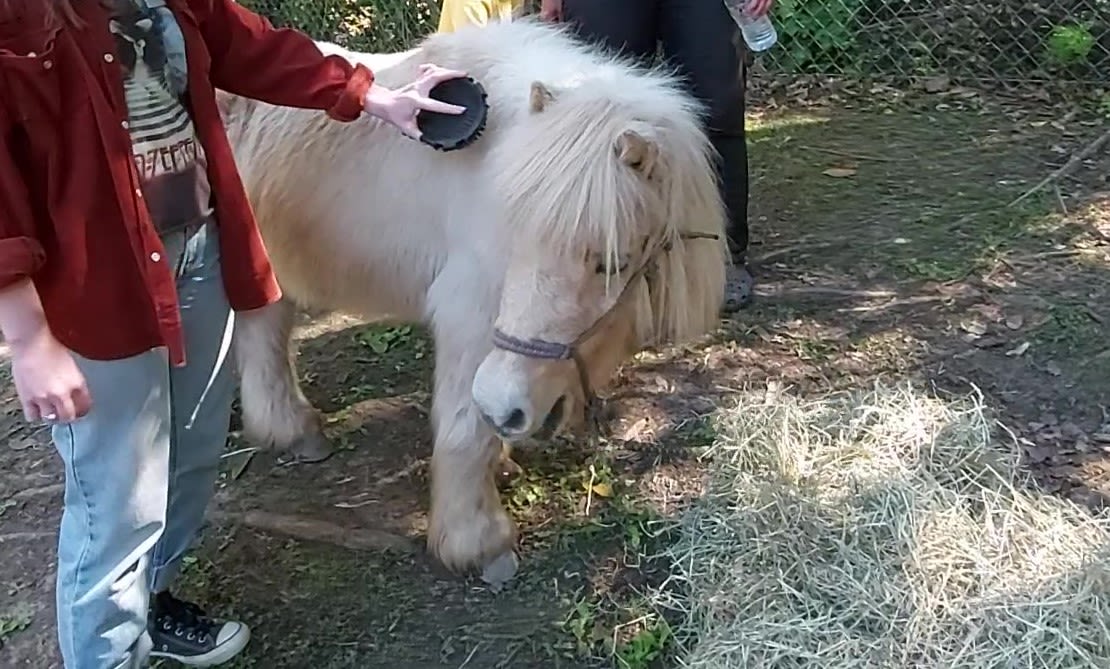
Equine-assisted therapy provides opportunities for children to identify and understand personal emotions, develop empathy, develop a sense of responsibility, learn to problem-solve, and to succeed in new tasks. (Netta Finney)
Equine-assisted therapy provides opportunities for children to identify and understand personal emotions, develop empathy, develop a sense of responsibility, learn to problem-solve, and to succeed in new tasks. (Netta Finney)
Julie is trialing Equine-assisted psychotherapy, a form of therapy that incorporates horses.
It is an experiential treatment in which participants partner with horses in mental health treatment.
A licensed mental health therapist who is also an equine specialist supervises and leads these sessions.
Research shows Equine-assisted therapy works
A study published in the The Journal of Health and Social Care in the Community examined the effects of Equine-assisted therapy on children who had experienced family violence.
According to the study, Equine-assisted therapy increased ‘self-esteem and personal confidence, communication and interpersonal effectiveness, trust, boundaries and limit-setting, and group cohesion’.
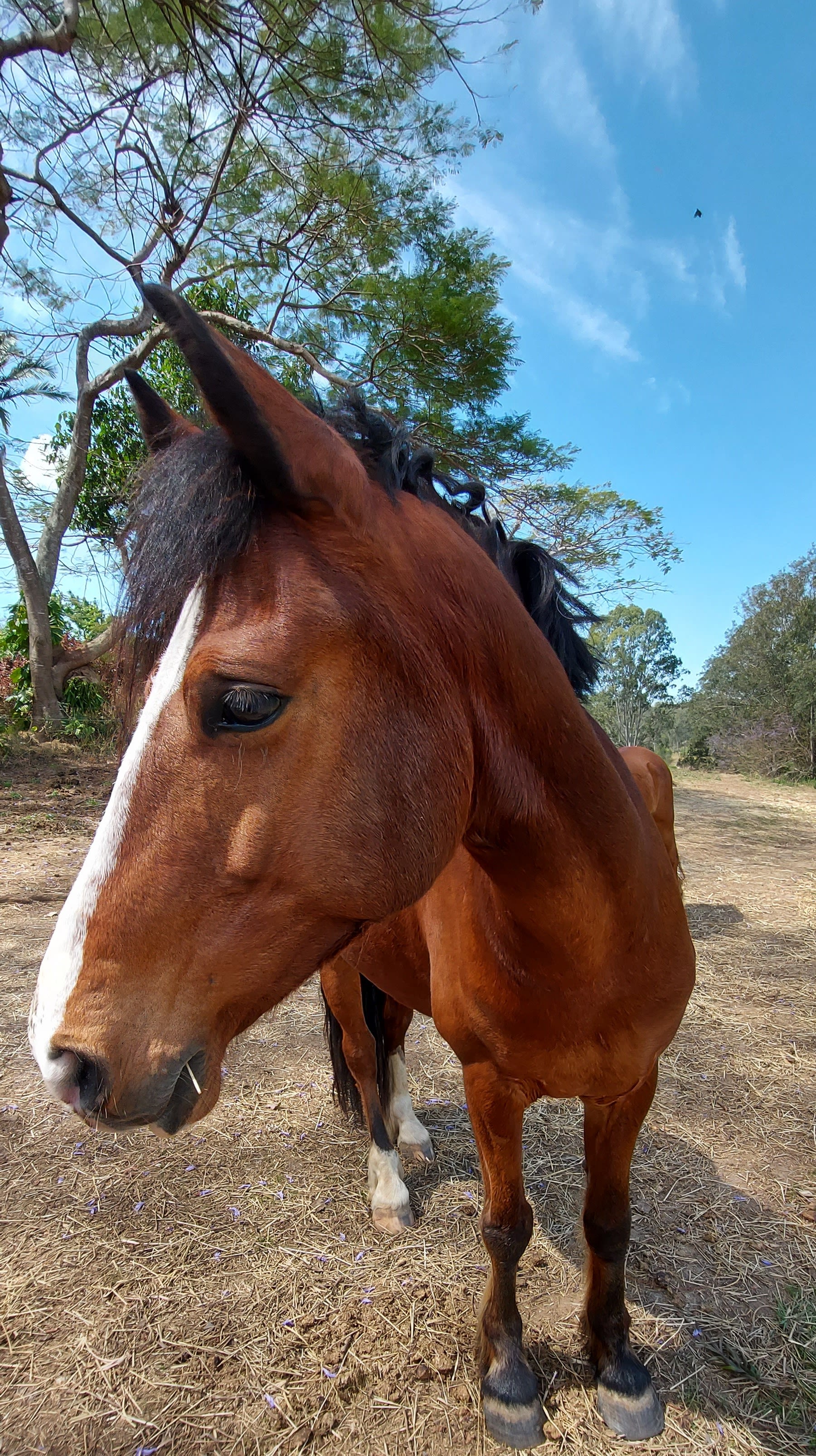
Research suggests that family violence witnessed by children negatively affects the way they view relationships. Relationship-building therapy involving horses may provide children with experiences that enhance trust, communication and guidance to healthier relationships. (Netta Finney)
Research suggests that family violence witnessed by children negatively affects the way they view relationships. Relationship-building therapy involving horses may provide children with experiences that enhance trust, communication and guidance to healthier relationships. (Netta Finney)
The study showed Equine-assisted psychotherapy helped improve children’s ‘psychological, social and school functioning’.
The younger the child and the more sessions they had, the better the results.
Rebuilding trusting relationships
Tracey Johnson, a counsellor and Equine-assisted psychotherapist, based in Queensland, says she has seen these types of results in her own practice.
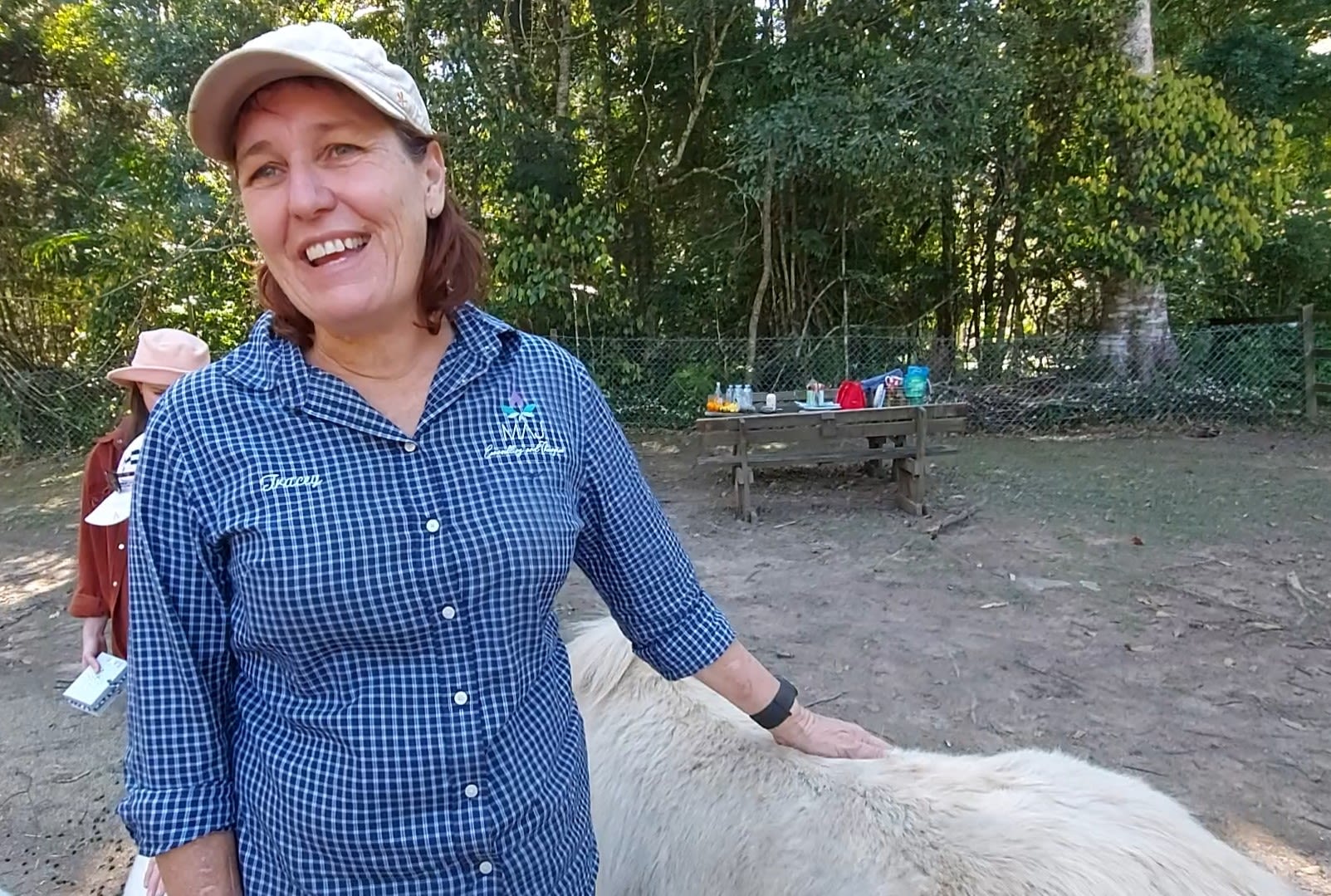
Psychotherapist and Counsellor, Tracey Johnson, says her love of horses drew her to studying and using Equine-assisted therapy to support her clients.
Psychotherapist and Counsellor, Tracey Johnson, says her love of horses drew her to studying and using Equine-assisted therapy to support her clients.
“When somebody has experienced trauma, they are often in what we call fight or flight.
“We are not connected with ourselves or to each other.
“So being in nature and being with the animals helps us to relax, our nervous systems to relax and for us to be more connected with the animals and each other.
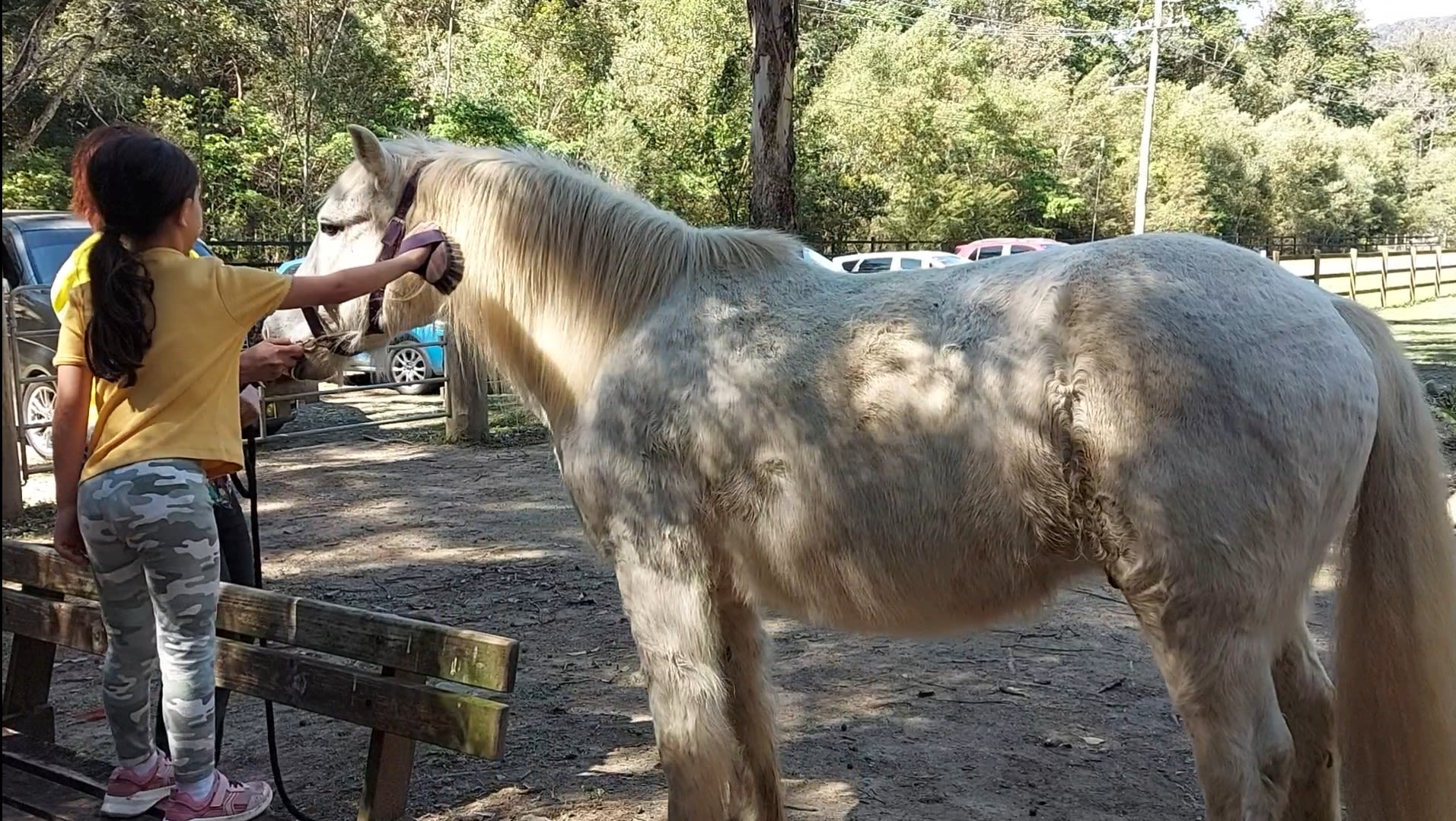
)People are often unaware of their behaviour until they can understand it through the way in which the horse reflects it back to them. (Netta Finney)
)People are often unaware of their behaviour until they can understand it through the way in which the horse reflects it back to them. (Netta Finney)
“Equine-assisted therapy works on building a relationship with the horse.
“So often people are traumatized by other people through domestic violence and for trusting somebody, that trust is broken so it’s about rebuilding that trust.
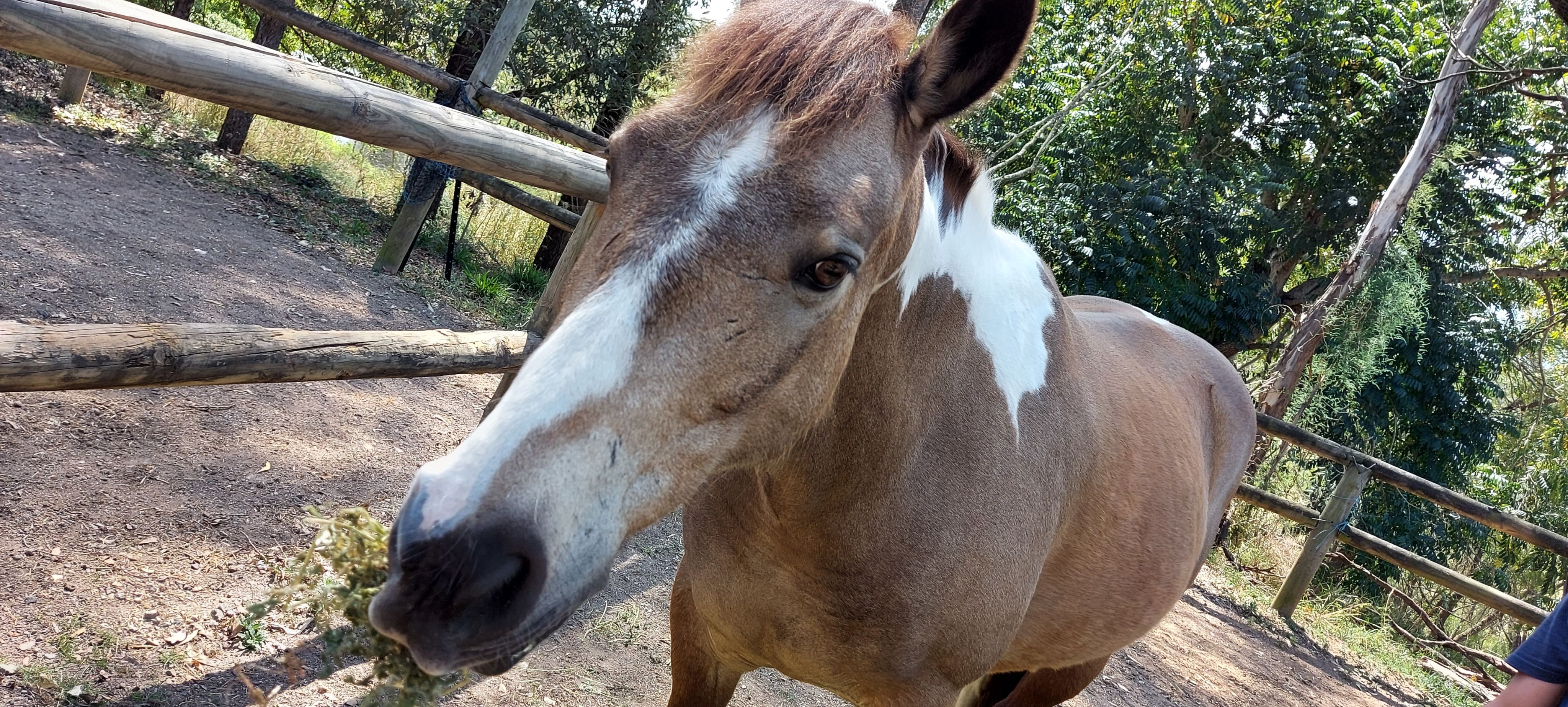
Several studies show children with a history of witnessing domestic and family violence are significantly more likely to be diagnosed with adjustment disorder and PTSD. (Netta Finney).
Several studies show children with a history of witnessing domestic and family violence are significantly more likely to be diagnosed with adjustment disorder and PTSD. (Netta Finney).
“People often can’t do that with other people, like a therapist or counsellor, so it’s really nice when people can rebuild that trust with horses.
“Horses build social bonds - they’re social, they’re herd animals. They’re about relationships.
“Horses are authentic. There’s no judgement when it comes to horses.
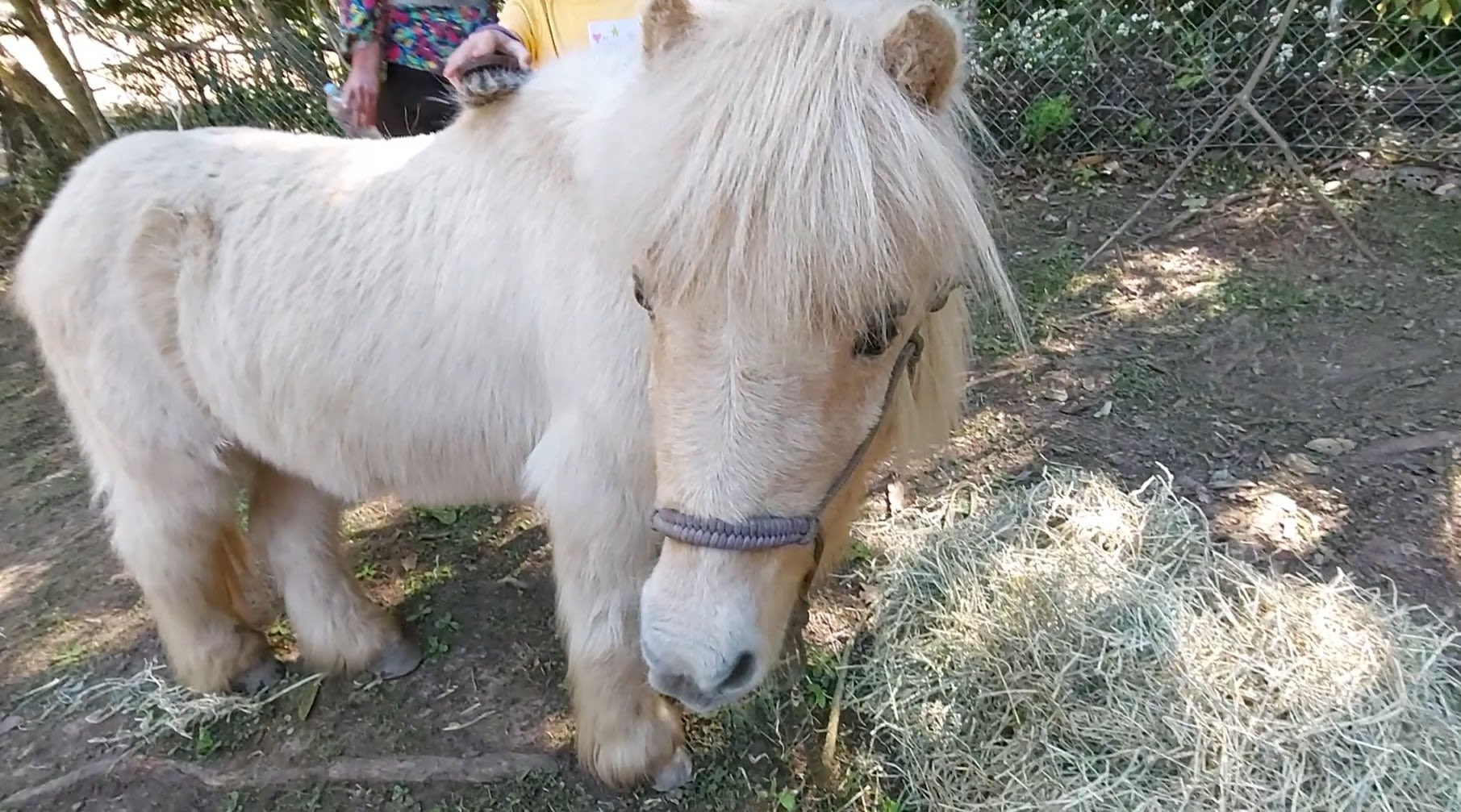
Elderly Casper, who lives at The Therapy Pod, is patient and gentle - essential qualities for working with clients who have experience trauma - according to his owner, Jane Ashton. (Netta Finney)
Elderly Casper, who lives at The Therapy Pod, is patient and gentle - essential qualities for working with clients who have experience trauma - according to his owner, Jane Ashton. (Netta Finney)
“But they’re going to set boundaries and they’re going to let you know what they do and don’t like.
“The relationship that you form with a horse is authentic and this helps to build trust.”
Julie says she feels she has benefited from her Equine-assisted therapy sessions with Tracey.
“Just because it was in the tranquil, you know, it was just around trees, a bit of grounding. I really liked that - to be grounded and to relax,” says Julie.
“And to be around horses. The horses were one of the key things.
“I feel that horses really understand you and they can sense your strength. They can feel what you’re feeling and they can understand what you’ve been through.
“Just beautiful things - and the connection between two life energies.
“I really enjoyed getting up close to the horses.
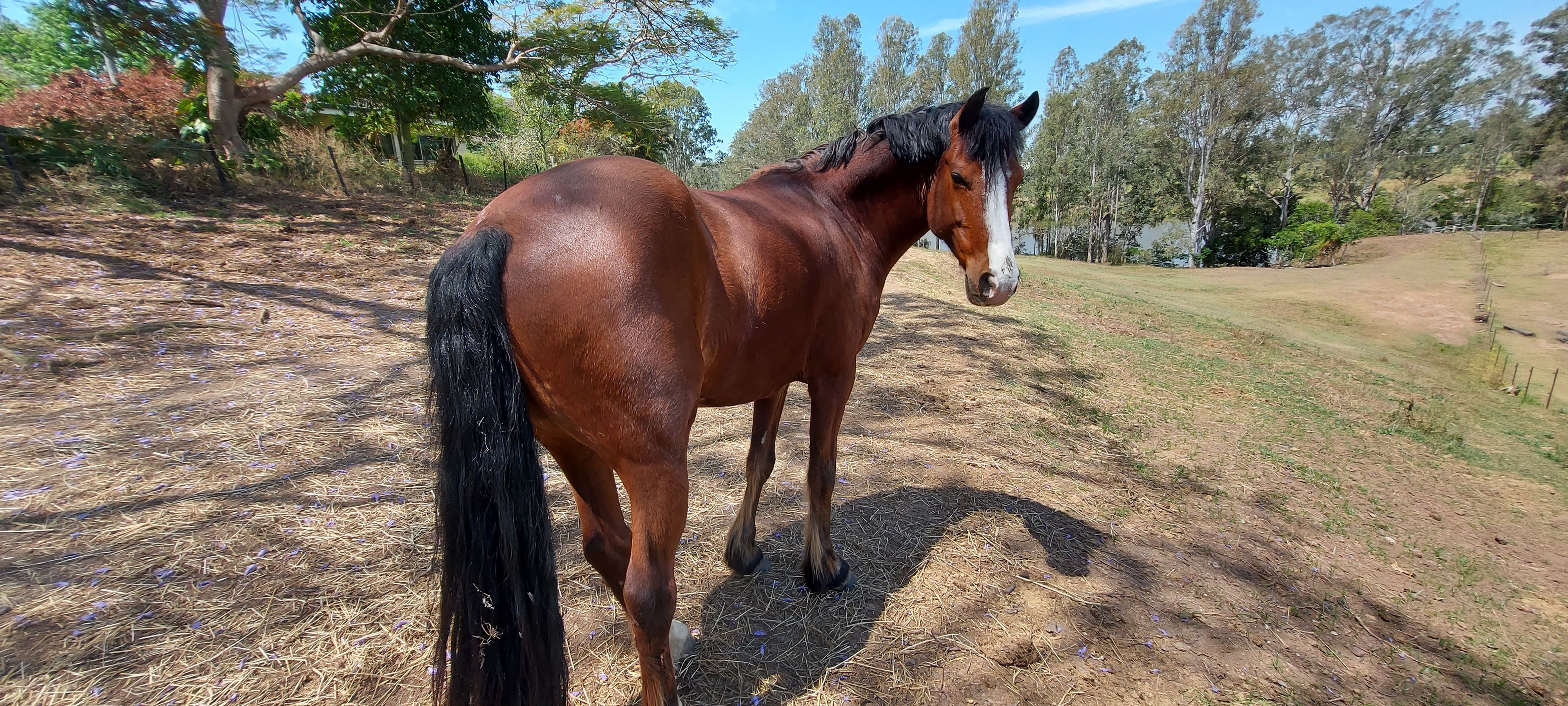
Banjo is a Connemara Pony who lives at Riverside Equestrian Centre, Moggill, Queensland. He often works with children with disabilities. His owners say he is cheeky and loves to pose for photos.
Banjo is a Connemara Pony who lives at Riverside Equestrian Centre, Moggill, Queensland. He often works with children with disabilities. His owners say he is cheeky and loves to pose for photos.
"It’s a wonderful program because it’s that feeling I talked about when I first went into the refuge - that feeling of being free.
“There are no expectations. You are totally just able to be yourself, something that I wasn’t able to be for many, many years.
Julie says that caring for herself helps her support her children through their trauma.
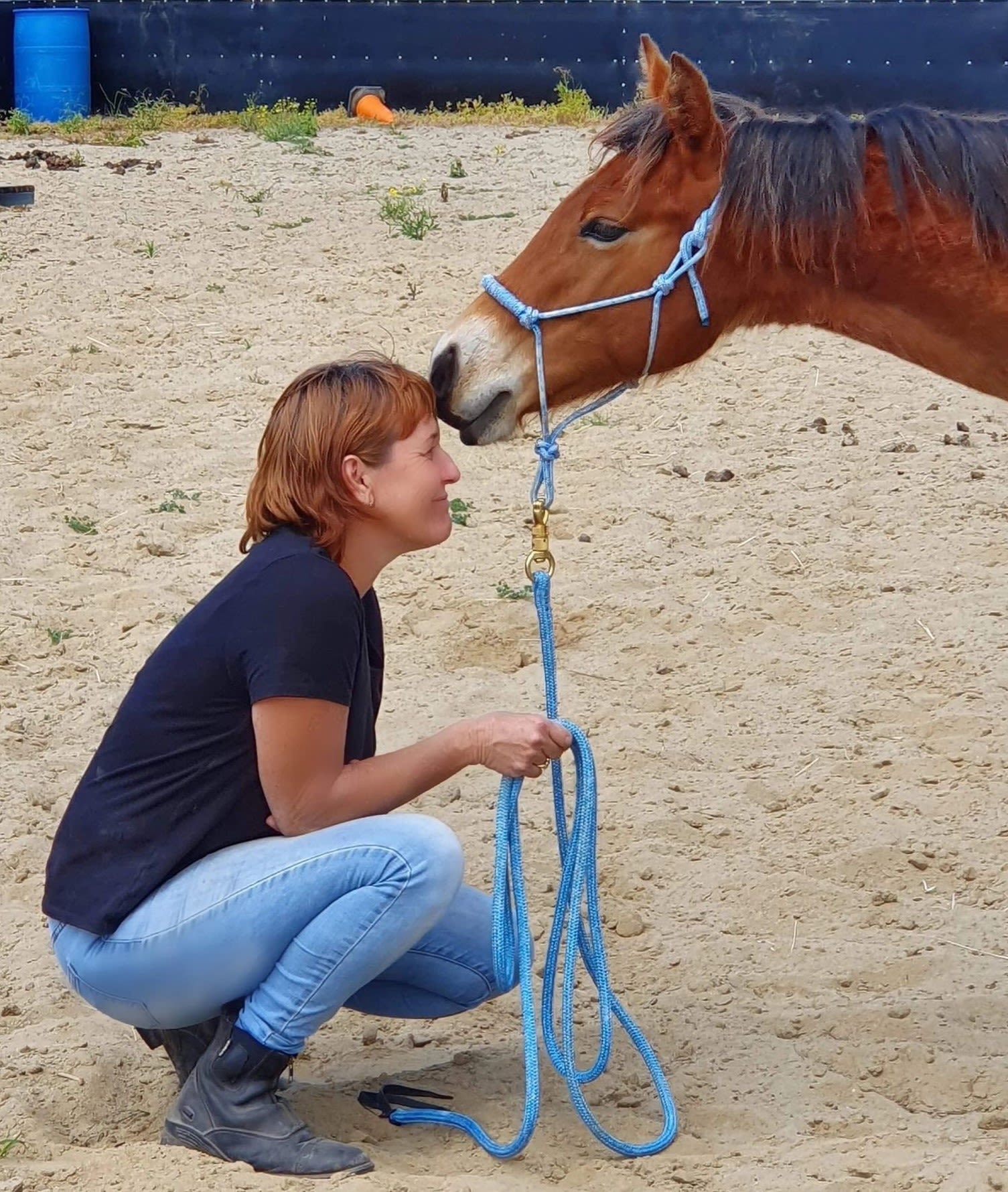
Tracey Johnson says people often say they feeling calmer after being with the horses. (MAJ Counselling and Therapies).
Tracey Johnson says people often say they feeling calmer after being with the horses. (MAJ Counselling and Therapies).
“Being stable in your emotions and keeping to your values that you hold strong and putting in that work.
“Love, kindness and just a lot of patience and when they’re displaying those feelings, just letting them go a little bit.
“And if they need a little bit of space, just let them have it.
“Constant love, constant cuddles, being there, just being that constant positive in their lives.”
Family and Domestic Violence Support
- 1800RESPECT (National Sexual Assault, Domestic, Family Violence Counselling Service) - 1800 737 732
- DVConnect - 1800 811 811
- Kids Helpline - 1800 55 1800
- Parentline - 1300 301 300
*Name has been changed for privacy.
